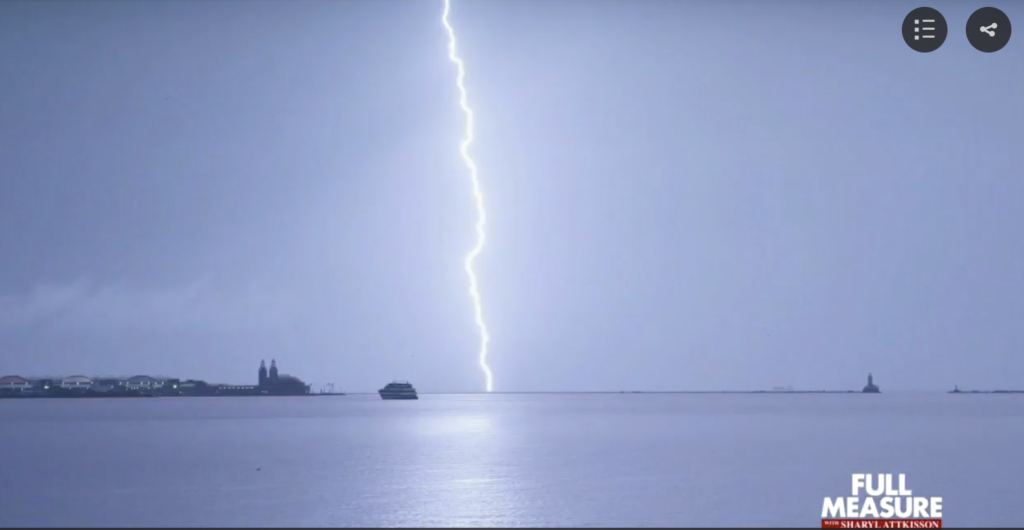
The following is a transcript of an investigative report on Full Measure News. Click on the link at the end of the transcript to watch the video story.
Coronavirus has been on the minds of many around the world this year. But coronavirus aside, people face many other dangers worldwide. Gallup and Lloyd’s Register Foundation recently finished the largest poll ever conducted on the topic of perceptions of risk around the globe. It asked people in 142 countries about safety of their water, food and work. Gallup’s Jon Clifton has the results.
Jon Clifton: So we went out and asked people, “What’s the single biggest risk that you have in your life?” And the number one thing that people told us that they had as a risk in their life was nothing. Now, you can interpret this in one of two ways. One is that it’s a good thing that the world’s getting a lot safer or the second thing that there’s a large disconnect.
Sharyl: So what were some of the top line findings when you ask these questions?
Clifton: Sure. So the second biggest thing that people mentioned most frequently in terms of risks to their daily life was traffic accidents. In fact, people in rich countries were far more likely to say that traffic accidents threatened them in their daily life, as opposed to people in poorer countries. When interestingly enough, traffic accidents threatened people in poorer countries far more frequently than they do in people in rich countries.
Sharyl: Along those lines, I’m sure, perception of risk and what people see as a risk must be very different in countries like the United States and countries that are less developed or less wealthy.
Clifton: Absolutely. So some of the things that people fear are, quite a bit, are things like being struck by lightning.
Sharyl: Here in this country or elsewhere?
Clifton: This is throughout the entire world or dying in an airplane accident, or in reality, one of the things that actually is far more likely to kill people, is drowning. So, people die of drowning at a rate of 300,000 per year, or as being struck by lightning is only around 24,000 people per year.
As part of its survey, Gallup and its partner, Lloyd’s Register Foundation conducted many face to face interviews and recorded them on camera.
Fight improper government surveillance. Support Attkisson v. DOJ and FBI over the government computer intrusions of Attkisson’s work while she was a CBS News investigative correspondent. Visit the Attkisson Fourth Amendment Litigation Fund. Click here.
Sharyl: But what are some of the risky things people perceive in the United States versus other countries?
Clifton: Yes. So one of the things that’s very unique to the United States is the perception that the government is a major risk to them in their life. So, for example, only 3% of people across the world say that the government or corruption in government is one of the biggest risks, but it’s 11% in the United States, which makes the United States top 10 in the world for naming top of mind is the government as one of their biggest risks in their life.
Sharyl: Were you able to tell which are the riskiest jobs?
Clifton: The two industries that are the most risky, number one is agriculture and the second one is construction. And here in the United States, construction is by far the most dangerous for Americans.
Sharyl: You able to tell which countries are filled with people who feel most at risk versus others? Is there a top country?
Clifton: The top countries in the world mostly reside in Africa.
Sharyl: Was there a country that seems safest in terms of perception of risks?
Clifton: Absolutely. So some of the countries that emerged at the top of the list were the Nordic countries and also Singapore. In those places people also largely trust their government, but people hugely feel safe among all those countries. So there are huge commonalities in the world, like the perception of road accidents, but there are also huge differences. I had the opportunity to conduct a few interviews myself in Ulaanbaatar in Mongolia and one of the individuals said back to me that the biggest risks she faced in her life are the dogs in her community. So being able to be in touch with what the perceived risks are by people will effectively help leaders create to write policies and to write actions to make people’s lives better.
Sharyl (on camera): An interesting note: 57% of people worldwide say they worry about the risk of getting false information on the internet or social media, that number is higher in the U.S.: 67%.
To read the World Risk Poll go to: lrfworldriskpoll.com
http://fullmeasure.news/news/shows/global-risks









